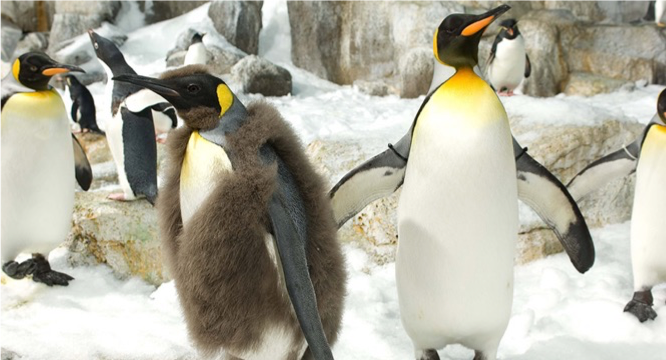


African penguins typically make a nest in the sand, on the ground, or under rocks and bushes. The female will lay two eggs. Once the eggs are laid, they will then take turn incubated the eggs. This can take up to 40 days once incubation is over the parents will take turn providing the chicks with food. The chick depends on its parents for survival between hatching and the growth of its waterproof feathers before it can fledge. This period may range from seven to nine weeks for some chicks. For other baby penguins it can last as long as 13 months. For most penguin, once a chick has replaced its juvenile down with waterproof feathers it is able to enter the water and becomes independent of its parents. However, even though some of the baby penguins have undergone a complete molt and are able to leave the colony to go to sea, they still return at night to receive food from their parents for an average of 12 days after their first foraging trip at sea. They do this because they are still learning out to fend for themselves.
Emperor penguin females will lay one egg and the male will incubate it. During this time the females will leave to go hunt for food. While the female is in search of food the males have huddled together to keep warm as they incubate the egg. While this is happening, the male will not eat. Incubation can take anywhere from 65-75 days. This means that the male is not able to leave and get food. They will rely entirely on their body fat for the next four months. The female will return just in time to feed their chicks. However, before they are able to do this, they will have to find their mates. They do this through a unique call they have created. This call is different depending on the mates.